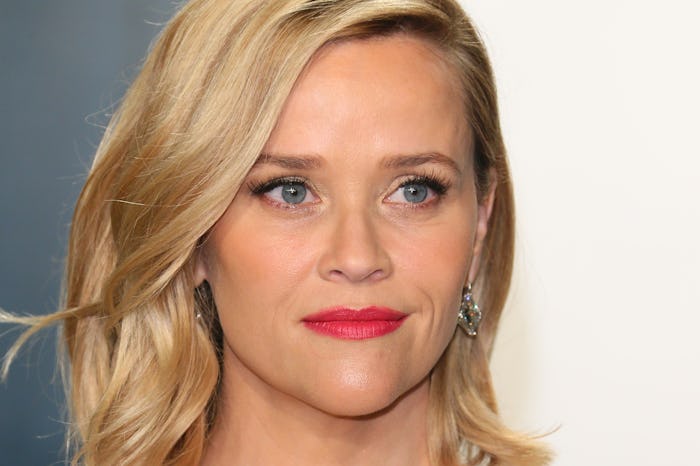Entertainment

Reese Witherspoon Says She Had To "White-Knuckle" It Through Postpartum Depression
After welcoming her first child at 23 years old, Reese Witherspoon struggled with postpartum depression, an experience that it hit her unexpectedly and left her feeling frightened by her own hormones, as she shared in a recent interview.
On Thursday, the Little Fires Everywhere actress appeared on an episode of Jameela Jamil's podcast I Weigh and discussed how each of her pregnancies were so different from each other. Witherspoon shares her 20-year-old daughter Ava and 16-year-old son Deacon with ex-husband Ryan Phillipe, and welcomed her 7-year-old son Tennessee with husband Jim Toth in September 2012.
"After each child I had a different experience," Witherspoon told Jamil. "One kid I had mild postpartum, one kid I had severe postpartum, where I had to take pretty strong medication because I wasn't thinking straight at all. And then one kid where I had no postpartum at all." Like Witherspoon touched on, postpartum depression can vary with each pregnancy, according to the National Library of Medicine.
Witherspoon went on to say that she believes hormones "are so understudied, and not understood." When she was struggling with postpartum depression after Ava was born, she said she tried to reach out to her doctors but felt there "just wasn't enough research about what happens to women's bodies."
Despite the fact that Witherspoon's mother was a pediatric nurse for 35 years, she was living in another state and communication was more difficult for them at the time. The Big Little Lies actress said she found herself on a "hormonal rollercoaster" that took her by surprise, especially when she stopped breastfeeding.
"No one explained to me that when you wean a baby, your hormones go into the toilet," Witherspoon said. "And I felt more depressed than I've ever felt in my entire life. It was scary."
While many women have experienced anxiety and depression after they stop breastfeeding, the link between the two is not often discussed, which can leave new moms, like Witherspoon was at the time, feeling confused and helpless. "I didn't have the right kind of guidance or help," Witherspoon told Jamil, "but I managed to just white-knuckle back."
Postpartum depression and depression surrounding breastfeeding remains one of those topics that doesn't get a whole lot of attention, which is why it is so important to share stories like Witherspoon has done here.
"I have deep compassion for women who are going through that," Witherspoon said. "Postpartum is very real."
If you or someone you know is experiencing depression or anxiety during pregnancy, or in the postpartum period, contact the Postpartum Health Alliance warmline at (888) 724-7240, or Postpartum Support International at (800) 944-4773. If you are thinking of harming yourself or your baby, get help right away by calling the National Suicide Prevention Lifeline at 1-800-273-8255, or dialing 911. For more resources, you can visit Postpartum Support International.